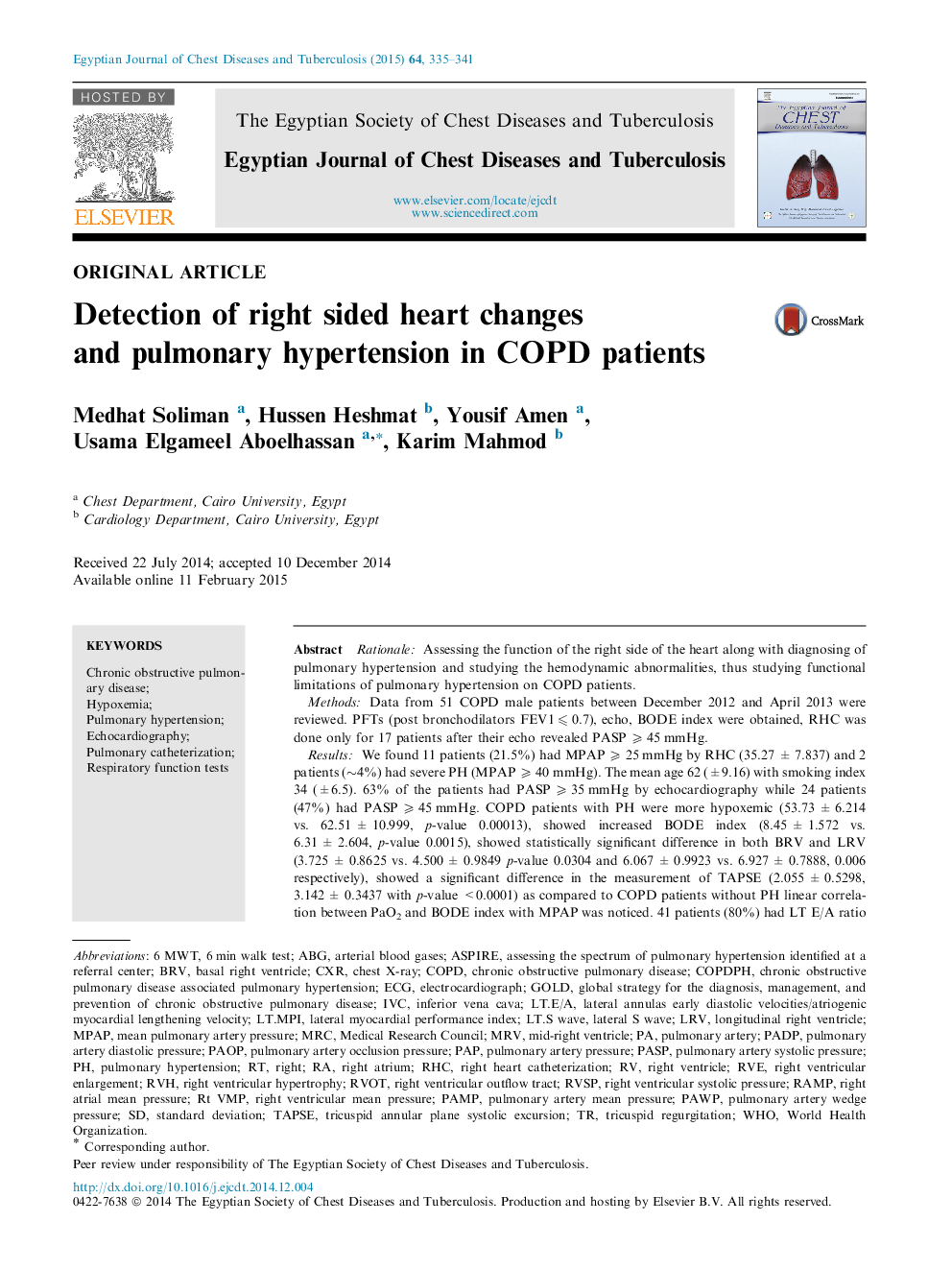| Article ID | Journal | Published Year | Pages | File Type |
|---|---|---|---|---|
| 3399976 | Egyptian Journal of Chest Diseases and Tuberculosis | 2015 | 7 Pages |
RationaleAssessing the function of the right side of the heart along with diagnosing of pulmonary hypertension and studying the hemodynamic abnormalities, thus studying functional limitations of pulmonary hypertension on COPD patients.MethodsData from 51 COPD male patients between December 2012 and April 2013 were reviewed. PFTs (post bronchodilators FEV1 ⩽ 0.7), echo, BODE index were obtained, RHC was done only for 17 patients after their echo revealed PASP ⩾ 45 mmHg.ResultsWe found 11 patients (21.5%) had MPAP ⩾ 25 mmHg by RHC (35.27 ± 7.837) and 2 patients (∼4%) had severe PH (MPAP ⩾ 40 mmHg). The mean age 62 (±9.16) with smoking index 34 (±6.5). 63% of the patients had PASP ⩾ 35 mmHg by echocardiography while 24 patients (47%) had PASP ⩾ 45 mmHg. COPD patients with PH were more hypoxemic (53.73 ± 6.214 vs. 62.51 ± 10.999, p-value 0.00013), showed increased BODE index (8.45 ± 1.572 vs. 6.31 ± 2.604, p-value 0.0015), showed statistically significant difference in both BRV and LRV (3.725 ± 0.8625 vs. 4.500 ± 0.9849 p-value 0.0304 and 6.067 ± 0.9923 vs. 6.927 ± 0.7888, 0.006 respectively), showed a significant difference in the measurement of TAPSE (2.055 ± 0.5298, 3.142 ± 0.3437 with p-value <0.0001) as compared to COPD patients without PH linear correlation between PaO2 and BODE index with MPAP was noticed. 41 patients (80%) had LT E/A ratio less than 0.8 with statistically significant difference between COPD patients with PH and those without (0.518 ± 0.1991, 0.702 ± 0.4052 and p-value 0.0333). We found that echo (1) sensitivity was about 65%, specificity of 50% with positive predictive value around 64% and negative predictive value around 50% (2) 74% of the patients had >10 mmHg difference between PASP calculated by echo and measured by RHC.ConclusionWe conclude that PH in COPD patients is a common co-morbidity along with right sided changes. Echo could be used with caution during assessment of PASP as it was inaccurate. COPDPH patients had worse prognosis than COPD patients without PH.Clinical impactScreening for PH in any COPD is highly recommended as it affects the prognosis.Echo could be used with caution during assessment of PASP in these patients.
